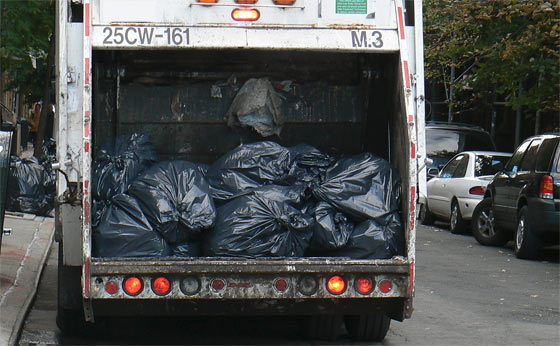How are People Going to Dispose their Trash, Garbage, Waste after SHTF?

So imagine this – the (systemic) systems around you have come to a halt. Those which most people count on to always be there and functioning – including the trash collection that stops by your house once-a-week to pick up your garbage and trash.
Let’s say that it all stops. How will you dispose of the trash and garbage which you may be producing while you continue to survive?
It’s a hypothetical question, and is intended to encourage you to think about the subject.
Chime in with your comments and opinions.
Here are a few thoughts…
For one thing, given that ‘modern’ living involves a tremendous amount of trash, waste, and ‘throw-away’ habits – I suspect that if times get tough – fewer things will be thrown out (the Great Depression anyone?). It involves one’s definition of ‘trash’.
In a SHTF world, there will be little consumerism, and people will be keeping anything they get their hands on. These things may come in handy for your own self or they may be used for barter and trade.
Now lets talk garbage… I also suspect that there will be fewer scraps (of food stuffs) thrown out because people will be genuinely hungry and will learn to eat EVERYTHING. This will result in less ‘garbage’.
Having said that, let’s say you’re living in a metropolitan area (where most people live) and you live in suburbia without much land. Of the garbage and trash that you do produce, where will you dispose of it?
Even more important, what about human waste, as in toilet? If the plumbing (and sewer) stops ‘working’, what are you going to do? Where’s that going to go? Have you thought about it?
For a short term ‘event’, the sewers may still flow downhill. However you may want to have a good supply of heavy duty trash bags (for any and all waste). For a longer term SHTF, you will need longer term solutions. If you have the room and the land, you can more easily manage this (holes in the ground).
Look into composting (organic wastes). You can reuse this in your garden eventually.
Look into what it takes to build a do-it-yourself ‘out house’.
Okay, hopefully this got you to thinking about it… what’s your opinion?
